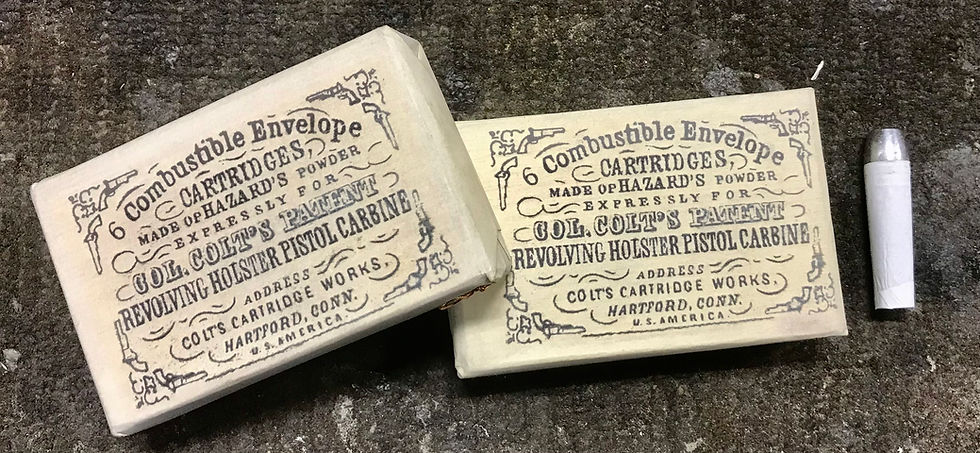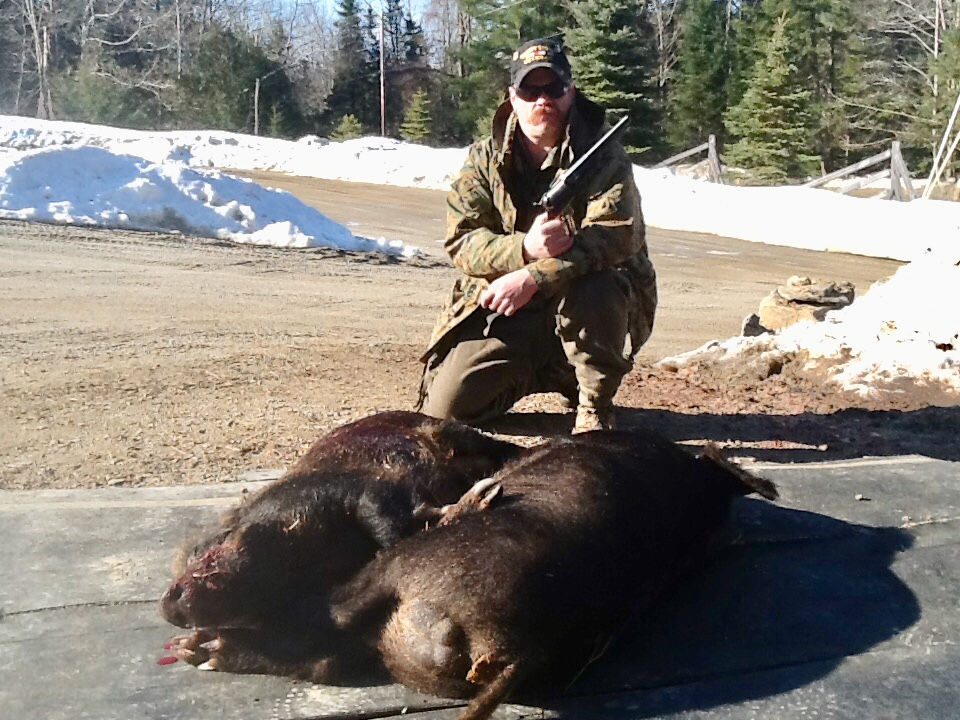Hog Hunting With A Black Powder Revolver
- muleequestrian

- Aug 21, 2025
- 3 min read
Updated: Nov 7, 2025
One of the most challenging aspects of hunting is using what’s called “primitive weapons.” And in this case, the primitive weapon is a reproduction black powder revolver known as a Colt Walker cap and ball revolver.

Elsewhere on these pages I show you how to roll paper cartridges for these old guns and their modern counterparts. (Click here) I make my own flammable paper cartridges that contain a powder charge and a bullet cast from Kaido Ojamaa’s bullet molds. In my cartridges I use a 200 grain Elmer Keith type of projectile of pure soft lead. I can fit 52 grains of 3fg Triple 7 gunpowder into the paper sleeve without too much compression. Ideally you will fill the paper tube to the base of the projectile and leave no air gaps. This particular load pushes the projectile to approximately 1,000 feet per second from the 9” barrel, and has the power of roughly a .45 Colt cartridge.

This is my reproduction Uberti made Walker revolver. Pietta makes them also, and once in a while you run across old Armi San Marco models. You can hunt with the smaller Army Colts, but they utilize a smaller powder charge. When I’m after bigger tuskers, I prefer something with more “ooomph”.

After taking off the wrapper, I expose the holes in a wooden block containing the combustible paper cartridges. Each packet contains enough ammunition for one cylinder load.

I start slipping the tapered paper cartridge into the individual chamber.

They are carefully rammed into the chamber with the loading lever that works like a compound ram rod.

I carry the pistol in a carved leather holster in a cross draw position because the pistol weighs nearly 5 pounds fully loaded. That’s a lot of iron on your hip to traipse around the woods with.

Now I’m just a bit cautious about posting my successful hunting photos on the Internet, because some folks are just a little too sensitive. However — this IS my page after all and if folks don’t like it, they can choose to not participate in reading what I write.

So here in this picture — I have successfully bagged a pair of 150 pound wild hogs. Both are young boars, and they fell to several well placed shots from the revolver. One fell immediately after ONE shot, while he was broadside to me at 30 yards. The other started to run and it took three to drop him. The boar quartered away and even though the first shot hit in the “boiler room”, the fat, bone, and gristle of his shoulder area gave him a little bit of extra protection. The second shot took him two inches to the left of his tail as he ran and traveled all the way into his neck — lengthwise through his body. The distance was about 40 - 45 yards. Even though he was down for the count, the third shot was a coup-de-grace just behind his ear as he thrashed on the ground. I didn’t want the animal to suffer needlessly. Not to mention that he was probably pumping a lot of adrenaline into his bloodstream. I don’t like when a game animal does this because it adds to the gamey taste of the meat.
The meat was greatly appreciated and made for some delicious BBQ that afternoon. Wild pigs are very destructive to the areas they live in, rooting up plants, tearing up the ground, and contaminating any bodies of flowing water by wallowing in them.


Bravo, congradulations, Jim! That is an awesome Wild Bacon" harvest! Yes indeed, hunting with these antique style replica black powder cap&ball percussion revolvers is a unique challenge eith while! Thank you for using my Kaido Ojamaa Hunting bullets to bring you home safely with the Wild Bacon!